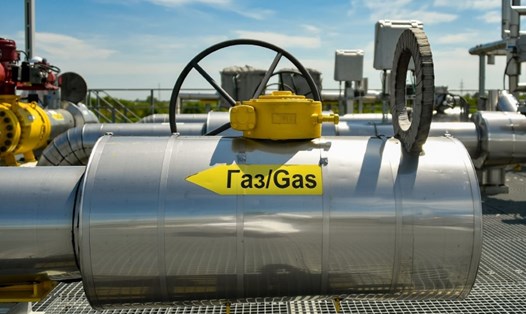On January 7, Hungarian Foreign Minister Peter Szijjarto said that one of the reasons for the high gas prices in Europe is Ukraine's blockage of Russian gas flows to Central Europe - RT reported.
Ukraine has refused to extend the pipeline gas transit contract with Russian Gazprom Group after the contract expired at the end of 2024, leading to indefinite delays in gas flows from Russia to Romania, Poland, Hungary, Slovakia, Austria, Italy and Moldova.
The decision has sent EU gas prices soaring to €50 per megawatt hour, a level not seen since October 2023. Since the route through Ukraine ended in mid-December, gas prices in Europe have increased by 20%, said Szijjarto.
Europe also faces a weakening of the bloc's competitiveness and a burden on the people, Mr. Szijjarto emphasized. The Minister said: "The decision to stop Ukrainian transit will lead to higher prices and create new competitive challenges for Central Europe as well as the entire European Union".
Mr. Szijjarto noted that Kiev has once again put Europe in a difficult position while trying to join the EU. Ukraine continues to be criticized for violating the EU linkage Agreement by terminating the contract with energy giant Gazprom.
Gazprom has been a major gas supplier to the EU, but exports to the bloc have fallen sharply since 2022, after the EU imposed sanctions on Russia and the sabotage of the Nord Stream pipeline - a direct gas pipeline to Germany.
Russia officially stopped supplying gas to the EU via Ukraine from January 1, 2025, after many months of failed negotiations with Ukraine. Meanwhile, Moscow has repeatedly said it is ready to extend the deal and continue deliveries through Kiev after 2024.
Russian President Vladimir Putin has accused Kiev of making things difficult for the EU with this decision, warning that this will lead to higher energy prices.
At his year-end press conference on December 19, 2024, Mr. Putin affirmed that stopping gas transit via this route will not greatly affect Russia.







